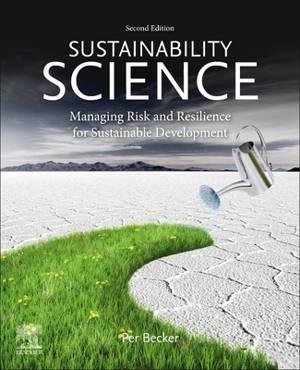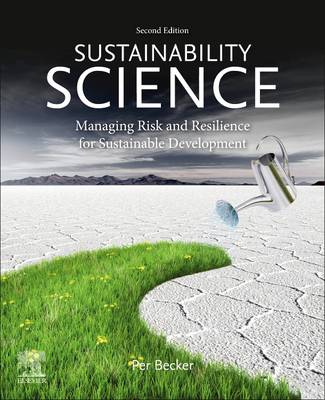
- Retrait gratuit dans votre magasin Club
- 7.000.000 titres dans notre catalogue
- Payer en toute sécurité
- Toujours un magasin près de chez vous
- Retrait gratuit dans votre magasin Club
- 7.000.000 titres dans notre catalogue
- Payer en toute sécurité
- Toujours un magasin près de chez vous
Sustainability Science
Managing Risk and Resilience for Sustainable Development
Per BeckerDescription
Continues to fill gaps between the descriptive, conceptual, and transformative sustainability science Sustainability is increasingly important across functional sectors and scientific disciplines. Policy-makers, practitioners, and academics continue to wrestle with the complexity of risk, resilience, and sustainability, but because of the necessary transdisciplinary focus, it is difficult to find authoritative content in a single source. Sustainability Science: Managing Risk and Resilience for Sustainable Development, Second Edition, contributes to filling that gap and is completely revised with several new chapters. It asserts that all efforts for the sustainability of humankind are undermined by the four fundamental challenges of complexity, uncertainty, ambiguity, and dynamic change. While there are no silver bullets, this book contends that we need systems approaches, risk approaches, participatory approaches, and resilience approaches to address each of them and endeavours to provide such. With that in mind, this book describes the state of the world (Part I), proposes a way to approach the world (Part II), and suggests how to set out to change the world (Part III).
Spécifications
Parties prenantes
- Auteur(s) :
- Editeur:
Contenu
- Nombre de pages :
- 552
- Langue:
- Anglais
Caractéristiques
- EAN:
- 9780323956406
- Date de parution :
- 09-11-23
- Format:
- Livre broché
- Format numérique:
- Trade paperback (VS)
- Dimensions :
- 190 mm x 235 mm
- Poids :
- 1148 g







